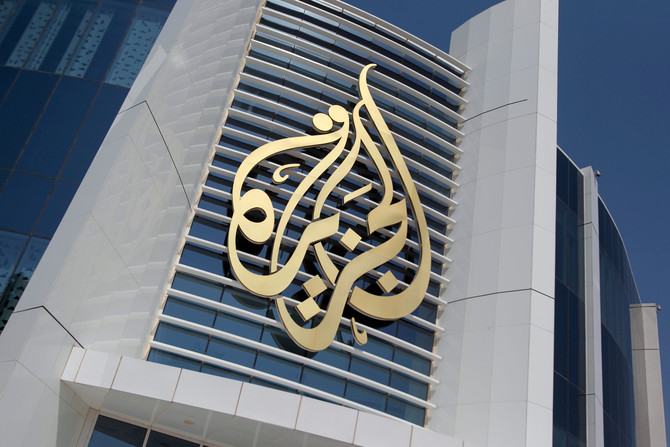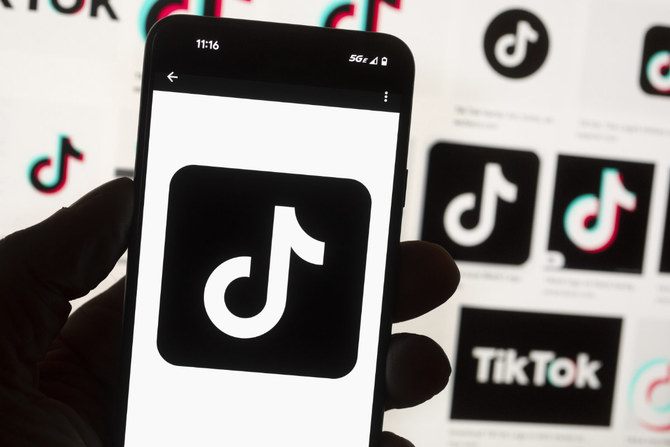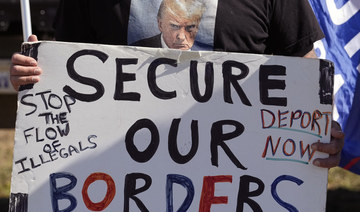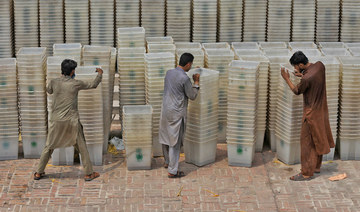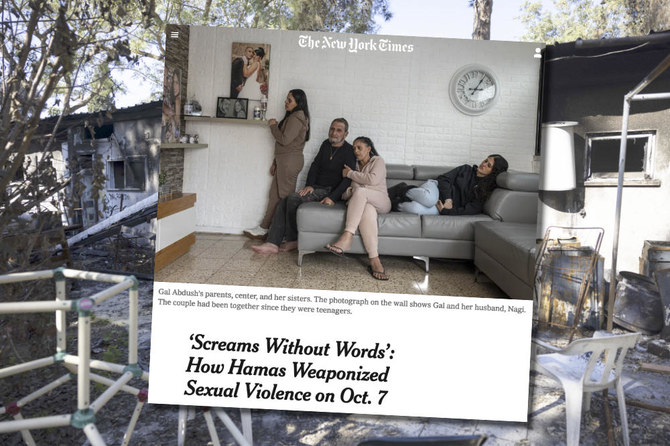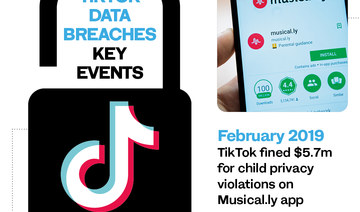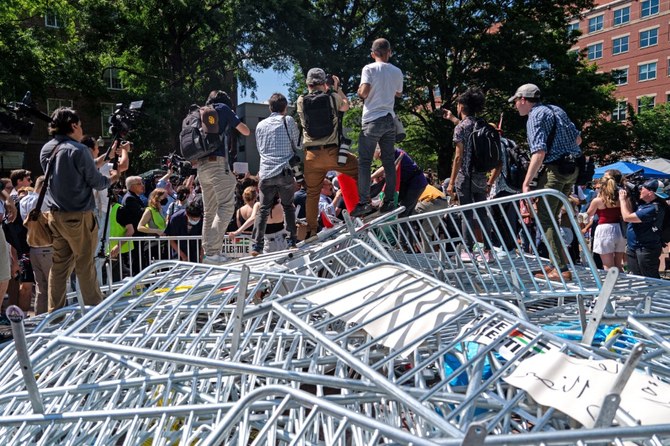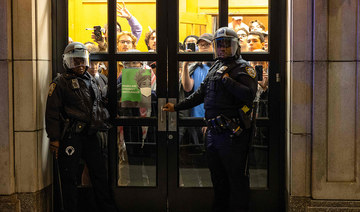LONDON: The key allegations made against Qatar in the Gulf diplomatic spat — that it supports terrorist and extremist groups, and has helped stoke regional tension — are identical to the main criticisms leveled against state-funded broadcaster Al Jazeera over its 21-year history.
And that is no coincidence because the media network’s aims go hand-in-hand with Doha’s objectives, say commentators.
After the Sept. 11, 2001 terror attacks in the US, Al Jazeera’s Arabic-language channel was accused of being a “mouthpiece” for Osama bin Laden, because of its willingness to air Al-Qaeda video messages and its perceived anti-American bias.
Today, the channel is just as brazen in its sympathy for terror and extremist groups, its role as a “political tool” for the Qatari government and in fanning the flames of regional disputes, experts say. 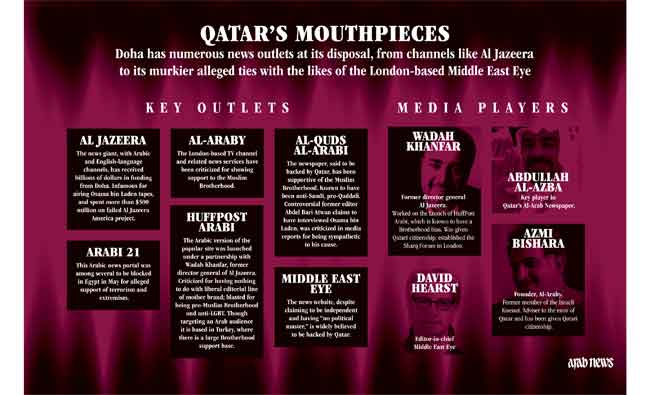
Al Jazeera is one of a raft of media outlets with links to Doha that have been blocked in some neighboring countries amid the ongoing diplomatic spat betweenQatar and its neighbors.
Bahrain specifically blamed Qatar’s “media incitement” in the region alongside Doha’s “support for armed terrorist activities and funding linked to Iranian groups to carry out sabotage and spreading chaos.”
Saudi Arabia, Egypt and the UAE, along with Bahrain and others, took the decision to boycott Qatar earlier this month.
Experts pointed to examples of how Al Jazeera has skewed the story in its coverage of the diplomatic spat.
The state-funded broadcaster recently insinuated that there was a contradiction between the positions of US President Donald Trump and his Secretary of State Rex Tillerson over the Gulf row.
The news station ignored the fact that Trump and Tillerson both acknowledged that Qatar is a terror financer and demanded an end to it. Instead, it aimed to suggest that the two US politicians were at odds over the blockade of Qatar — even though President Trump said nothing about the topic.
There are also ongoing examples in which Al Jazeera apparently shows sympathy toward terrorist and extremist causes, experts say.
Journalist Abdel Latif El-Menawy, the former head of Egypt’s state TV news under ousted leader Hosni Mubarak, said there is nothing new about this approach by the well-funded media network.
“Qatar chose from day one to stand behind these extremists in Libya, Syria and Iraq. They chose to stand behind the (Muslim) Brotherhood in Egypt,” El-Menawy told Arab News. “Al Jazeera was just a tool, was reflecting the politics (of) Qatar.”
El-Menawy cited Al Jazeera’s use of the word “martyrs” to refer to suicide bombers, which he said was part of the channel’s “propaganda.”
“This is poisoning the atmosphere around us…. The society, the ideas, the way of thinking,” he said.
While Al Jazeera has always had an agenda, this was much less apparent to the general public before the 2011 uprisings in the Arab world, El-Menawy said. But now it is clear to everyone that it is a “propaganda channel reflecting the Qatari regime’s politics.”
Rasha Abdulla, a professor of communications at the American University in Cairo, also said that the channel toed the line of the Qatari government.
“When Qatar abolished its ministry of information, we welcomed this as a positive step — but as time went by, we saw that Al Jazeera was acting not only as an (Qatari) information ministry but as a foreign ministry,” Abdulla told the Financial Times.
In the early 2000s, Al Jazeera was the go-to channel for Al-Qaeda when it wanted to release video messages.
“Al Jazeera made its name through Al-Qaeda. Without Al-Qaeda I feel it would have had less influence, less presence in the international arena,” said El-Menawy.
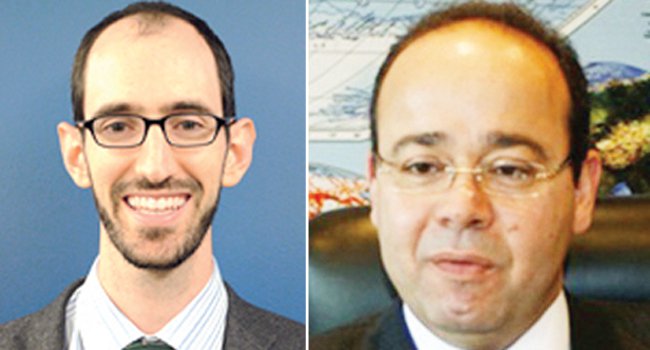
David Weinberg (L) and Abdel Latif El-Menawy
And the channel is still a “counterproductive force” in the fight against terrorism, according to David Weinberg, a senior fellow at the Foundation for Defense of Democracies, a non-profit, non-partisan policy institute focusing on foreign policy and national security.
“Al Jazeera routinely praises terrorists as martyrs, provided they are trying to kill Israelis — and that includes those efforts that seek to kill Israeli civilians and not the armed forces,” Weinberg told Arab News.
“Al Jazeera gives extremely favorable airtime to Iran-backed violent groups like Hamas and Palestinian Islamic Jihad, airing their propaganda without questioning and including their fighters in the list of ‘martyr’ death tolls. But Jews are never ‘martyred’ in Al Jazeera’s eyes. They are merely ‘killed’.”
Al Jazeera did not respond to several requests for comment when contacted by Arab News. Some have said that the channel — which has been blocked in several neighboring countries and had its offices shuttered in Saudi Arabia — could be a bargaining chip in a possible negotiation of an end to the Gulf diplomatic dispute.
But its coverage of the dispute has been notably different than that of the other news stations. Al- Jazeera’s English-language website, for example, terms the action against Qatar by its Gulf neighbors as a “siege.” And on Saturday, it ran a story about alleged kidnap and torture by UAE-backed forces fighting in Yemen — a war in which Qatari troops were recently pulled at the insistence of Saudi Arabia and its allies.
Weinberg said that the political environment has a direct impact on Al Jazeera’s coverage of its neighbors.
“It has become much more hostile to Saudi Arabia, for example, now that Saudi rulers are more vocal about Qatari misconduct. It was similarly more hostile to Saudi Arabia in 2014 and for half a decade after 2002 when Riyadh withdrew its ambassador from Doha,” he said.
“Al Jazeera sometimes does decent work when the subject has nothing to do with terrorism, extremism, or Qatar’s foreign policy interests,” added Weinberg. “But Qatar views its interests rather broadly throughout the region and the world, and it influences the direction of Al Jazeera as a tool of Qatari policy.”


